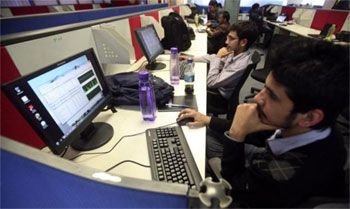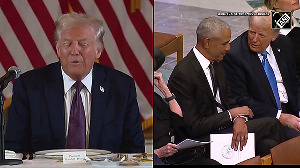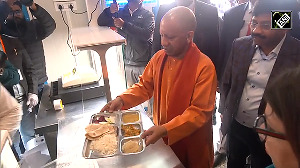Sebi can also sweeten it with a stipend of Rs 5,000 each and charge the Rs 240 crore to the Sahara account
 Last week, the Supreme Court bench hearing the Sahara case categorically stated that the court's earlier orders had made it absolutely clear that the two group companies in question would have to deposit the entire sum raised from depositors with the Securities and Exchange Board of India (Sebi).
Last week, the Supreme Court bench hearing the Sahara case categorically stated that the court's earlier orders had made it absolutely clear that the two group companies in question would have to deposit the entire sum raised from depositors with the Securities and Exchange Board of India (Sebi).
If at all there was any premature refund made directly to investors as claimed by Sahara, these can be later claimed from Sebi, it said.
These observations give comfort to the regulator. However, the question of verification of addresses remains. The court's orders are clear that the matter would not close until Sebirecords its findings on these documents, one way or the other. It either has to find these investors or declare them bogus.
Let's try to recall the numbers. Till April 2011, when the two companies ceased to raise money, they had touched 30.79 million people. Sahara has deposited the documents (127 truckloads containing 30.4 million application forms and 22 mn refund vouchers) relating to the investments. Sebi counsel had claimed in court that the regulator had sorted these documents after deploying significant amounts of people, time and effort. "Today, we are in a position to say if we give the control number, both the form and refund voucher would come out," Arvind Datar had told the court in March last year.
Over a year later and another round of advertisements to draw the attention of investors, there has not been any sign of major success. "They spent Rs 38 crore (Rs 380 million) to repay one and half crore rupees," a Sahara lawyer had mocked.
Sebi had floated tenders for appointment of an agency to do in-person verification of these investors. Yet, the talk died out in early 2013 itself. While the 30-mn number itself sounds daunting, a little break-up would help. One way to approach this could be to take lessons from Sahara itself. It was managing this business through a nationwide network of 4,799 branches. This means each branch had an average of 6,415 bondholders, not a daunting number.
Sebi should now take matters in its own hands and appoint 10 verifiers in each branch, with a mandate to verify 640 addresses each. The number can be increased or decreased proportionately where the investor population is far off the averages. Each of these verifiers should be given a maximum of 64 days from today to complete the job, meaning they have to verify only 10 in a day, a cakewalk.
Sebi can get these 48,000 people from among the students in colleges, B-schools and other professional courses such as chartered accountancy, company secretaryship, etc. These can be allowed to consider the period spent for Sebi as summer internship, wherever applicable, and appropriate certificates can be issued, duly crediting them for participating in an important task of public interest. Adequate publicity should be given to bring top colleges and institutions. A certificate from Sebi would be lapped with glee by these young people, if marketed properly.
Sebi can also sweeten it with a stipend of Rs 5,000 each and charge the Rs 240 crore (Rs 2.4 billion) to the Sahara account, already allowed by the court. Whether or not Sahara complies, by the time the court reopens in July, Sebi can hold its head high, beside sending a strong message that it would not be bogged by a paper mountain.







 © 2025
© 2025